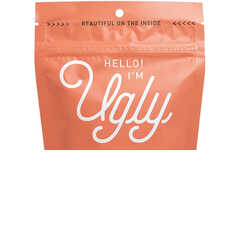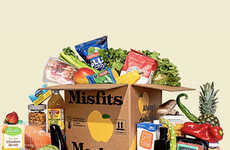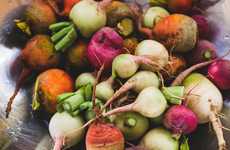
Loblaws' No Name Products Are Branded as 'Naturally Imperfect'
Laura McQuarrie — March 18, 2015 — Eco
References: loblaw & treehugger
Following in the footsteps of French supermarket Intermarché, Canada's largest grocery retailer is making efforts to get ugly produce off the shelves. Because store displays are often set up to show off the most appealing and perfectly shaped fruits and vegetables, there ends up being a lot of misshapen foods that go to waste—just because they look a little funny. In an attempt to counter this, Loblaws is appealing to shoppers with a new line of 'Naturally Imperfect' products.
The best part about these ugly pieces of produce is that they will be sold at a discount that's 30% less than comparable attractive produce. In the battle against food waste, it's admirable to see that big chains are stepping up to show that aesthetics aren't everything.
The best part about these ugly pieces of produce is that they will be sold at a discount that's 30% less than comparable attractive produce. In the battle against food waste, it's admirable to see that big chains are stepping up to show that aesthetics aren't everything.
Trend Themes
1. Reducing Food Waste - The trend of reducing food waste presents an opportunity for innovative solutions to packaging and selling ugly produce.
2. Discounted 'ugly' Produce - The trend of selling discounted 'ugly' produce opens up opportunities for retailers to appeal to cost-conscious consumers while reducing food waste.
3. Consumer Demand for Sustainability - The trend of consumer demand for sustainability creates opportunities for retailers to cater to eco-conscious shoppers by offering 'naturally imperfect' produce.
Industry Implications
1. Grocery Retail - The grocery retail industry can capitalize on the trend of selling 'naturally imperfect' produce by implementing effective marketing strategies and attractive packaging.
2. Packaging - The packaging industry can explore innovative designs and materials to create eco-friendly and appealing packaging solutions for 'ugly' produce.
3. Sustainable Agriculture - The sustainable agriculture industry can benefit from the trend of reducing food waste by developing efficient farming practices and providing support to retailers who sell 'naturally imperfect' produce.
5.3
Score
Popularity
Activity
Freshness























